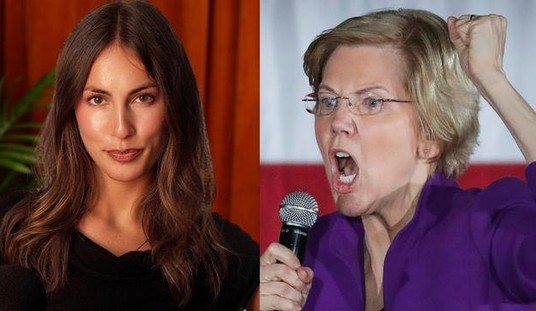Oprah Winfrey’s interview last week with Harry and Meghan was apparently a big hit. Not sure who might have been interested — probably many of the same people who watch “Dancing With the Stars” or “Thousand-Pound Sisters” — uplifting shows like that.
At any rate, Oprah created meme heaven for those who keep track of stuff like that with her priceless reactions of shock and surprise.
Oprah gave us so many memes last night pic.twitter.com/ZkK8bCgm9m
— philip lewis (@Phil_Lewis_) March 8, 2021
But there’s a problem with this, according to the Slow Factory Foundation. It seems that if a white guy like me used Oprah to do some meme-spreading, I would be guilty of practicing “digital blackface.”
Digital blackface is sort of like regular blackface except a real person isn’t wearing blackface. Neither is anything “digital.” In fact, it has nothing whatsoever to do with reality.
It’s a make-believe term used exclusively in the make-believe world of race-shaming.
In an Instagram post, the organization used an Oprah meme as a direct example of ‘digital blackface’ – sparking a furious debate in the comments where some agreed with the message, while others hit back, claiming that banning non-black people from posting the memes equates to ‘black erasure’.
‘Performing Blackness, be it IRL or online, is not an acceptable form of expressing reaction or dissatisfaction, especially not in exchange for likes and retweets,’ the organization wrote in its post.
Sort of like the ban on using images of Mohammed but without the threat of being beheaded.
Note that it’s OK to “like” and “retweet” the meme — just don’t comment on it. And if you can wrap your head around that, try understanding white people who agree.
“Thanks for educating! Didn’t know about this,” one person wrote, while another added: “What an interesting point that I’ve never even considered. I never been a fan of non Black people using Black emojis because it felt obviously wrong.”
“But sharing gifs and images is one that never even crossed my mind and the example given makes so much sense. Definitely going to evaluate what I post and when.”
That’s a guy born to walk on eggshells.
While a number of commenters agreed that white and non-black people shouldn’t use black emoji, there was a popular argument that equating memes and GIFs with digital blackface was doing more harm than good.
Some said the conversation was actually taking the focus away from more important issues such as blackface and cultural appropriation.
‘Blackface is a violent and harmful representation of black people rooted in violence. Using a gif of Oprah is NOT blackface. That is such a gross misnomer and false equivalency,’ one person commented.
All of these things — emojis, memes, and GIFs — are representations. One could argue they are an art form but that may be stretching the point. So, too, is blackface a representation. Dictating to people what they can and can’t represent is limiting speech. It’s true that blackface is a hurtful representation, and generally shouldn’t be done, but “violent and harmful”?
It hurts people’s feelings and is impolite for that reason. But it’s not the end of the world nor should it condemn the practitioner to eternal damnation. Belaboring a definition of blackface — reimagining it, exaggerating it, twisting it, — doesn’t bring the world closer to racial equality or harmony.
It just pushes us further apart.










Join the conversation as a VIP Member